‘The heart and soul of the Senate’: Committees explained

Sober second thought doesn’t just take place in the Red Chamber.
Senate committees perform some of the most important work in Parliament. Senators on committees scrutinize bills and shed light on issues that affect Canadians so they can improve legislation and spark change.
No less an authority than Muriel McQueen Fergusson, the first female Speaker of the Senate, described committee work as the “heart and soul” of the Senate.
But what, exactly, are Senate committees?
The short answer is simple — committees are groups of about a dozen senators that study proposed legislation, investigate matters that touch Canadians’ lives and examine government spending proposals.
More broadly, committee members stand up for the interests of their regions and minorities — another way the Senate includes and represents the diversity of Canadian voices.
In fact, an essential part of committee work is to listen to Canadians so their perspectives can inform the work of committee members. For instance, senators invite expert witnesses to give informed evidence about bills or issues being studied. Senators also undertake public hearings and fact-finding missions to hear directly from people who stand to be affected and who may not be able to travel to Ottawa.
The results of this work are laws that take into account Canadians’ views and rigorous, thoughtful reports that can directly improve public policy.
How are committee members selected?
Typically, the Committee of Selection meets at the beginning of each new session of Parliament to choose senators to serve on committees. It is made up of nine senators and its membership is roughly proportional to the standings of recognized parties and parliamentary groups in the Senate.
What are the different types of committees?
Standing committees: Standing committees are permanent committees that are written into the Rules of the Senate. There are 17 standing committees. They cover issues ranging from foreign affairs, banking and defence, to energy, the environment and human rights.
A full list of current committees, their membership and studies can be found on the Senate of Canada’s website.
Subcommittees: Subcommittees are offshoots of Senate committees that study a specific topic under the broader mandate of their parent committee. The Subcommittee on Veterans Affairs, for instance, is often created by the Senate Committee on National Security and Defence; it focuses specifically on issues relating to veterans. And every committee has a Subcommittee on Agenda and Procedure — usually just called the “steering committee” — that can make decisions on behalf of the entire committee, like what to put on the committee’s agenda and which witnesses should be invited to appear.
Special committees: A special committee comes together for one particular purpose and ends when its final report is presented in the Senate. The Special Committee on the Arctic’s 2019 report Northern Lights: A Wake-Up call for the Future of Canada provided strategic advice on Arctic policy following a years-long study. The special committee gave senators the opportunity to delve deep into issues like housing, shipping and culture in the North. Other special committees have studied the aging population, anti-terrorism and Canada’s charitable sector.
Joint committees: Joint committees include senators and members of Parliament. Some are standing joint committees, like the committees on Scrutiny of Regulations and the Library of Parliament, or special committees tasked to look at a particular issue or bill. For example, the Special Joint Committee on Physician-Assisted Dying provided information and recommendations that shaped Canada’s first piece of legislation on this matter of life and death.
Committees of the whole:
A committee of the whole includes every senator and takes place in the Chamber. It is less formal than a sitting of the Senate and is usually convened only for a matter of hours to study a very specific topic. It provides a format for senators to hear from senior officials like cabinet ministers or appointees to public positions such as the auditor general. When the government introduced back-to-work legislation to end a Canada Post labour disruption in 2018, the Senate resolved into a committee of the whole so senators could question two cabinet ministers about the bill during a special Saturday sitting.
Can committees operate when the Senate is not in session?
When a parliamentary session ends, so does committee work — with three exceptions. The Standing Committee on Internal Economy, Budgets and Administration continues to manage the administration of the Senate even when Parliament is prorogued or dissolved. Members of the Standing Committee on Ethics and Conflict of Interest for Senators and the Standing Committee on Audit and Oversight are also allowed to hold meetings.
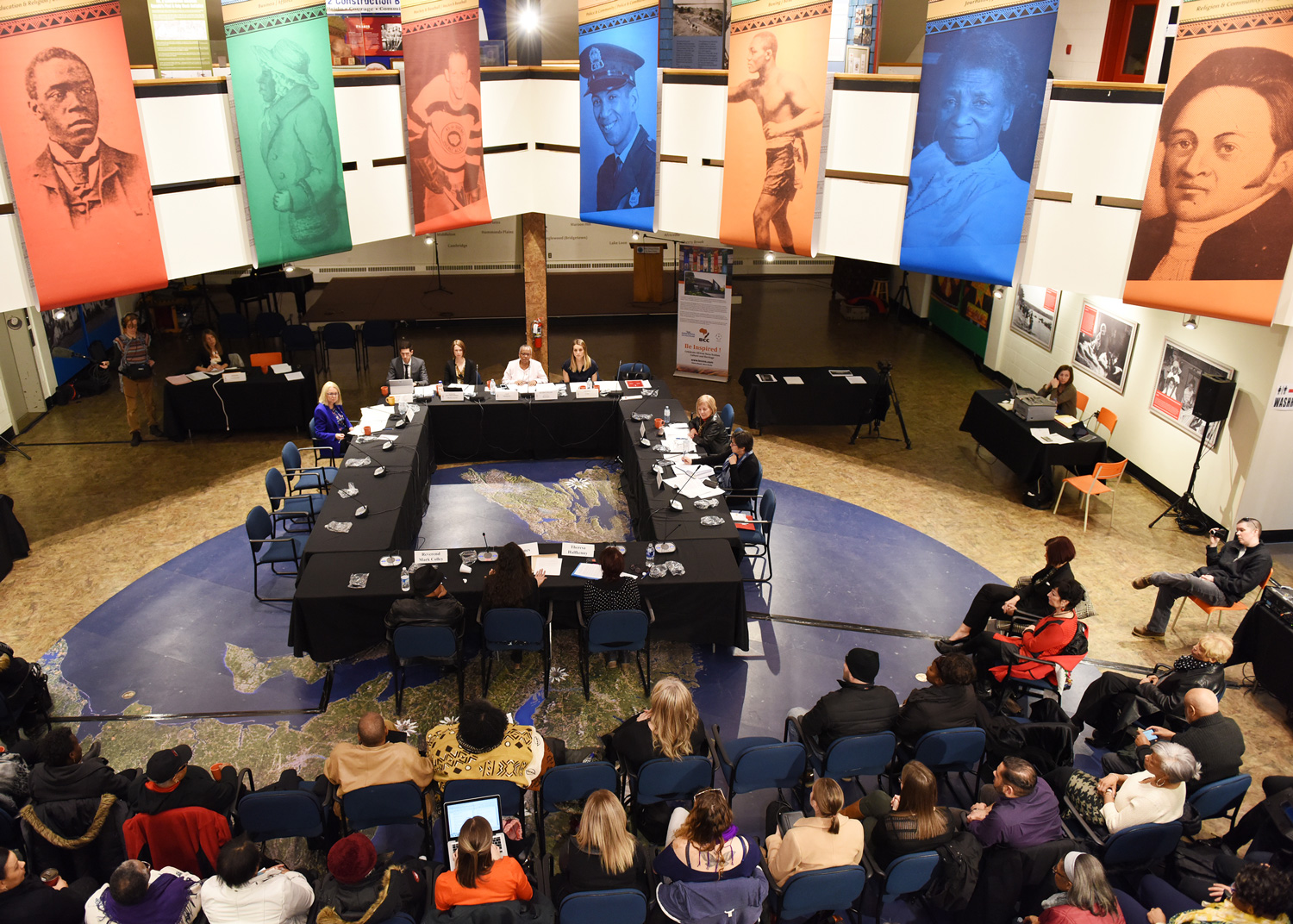
Members of the Senate Committee on Human Rights hold a meeting in Halifax in 2018.
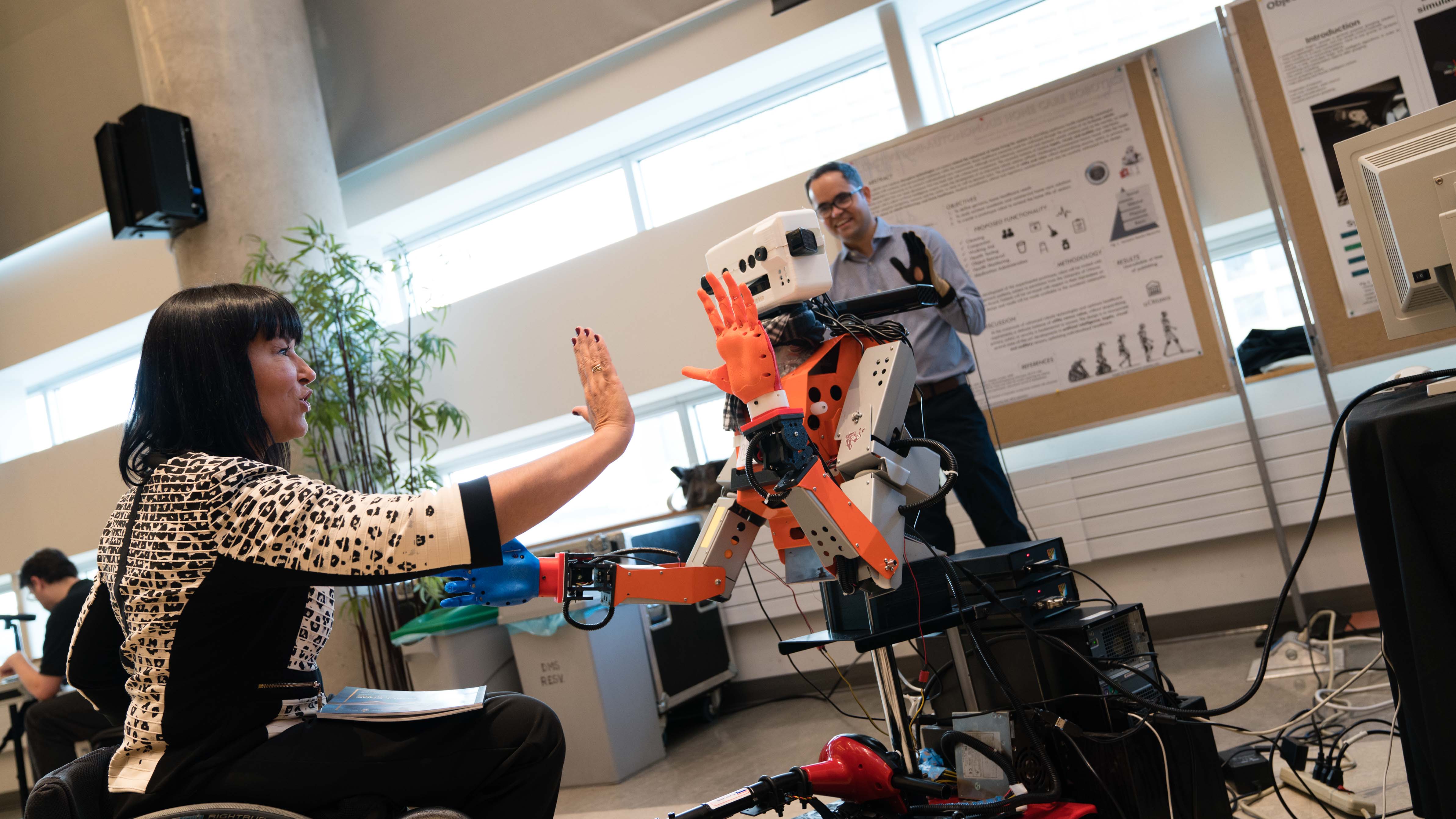
Senator Chantal Petitclerc high-fives a robot during an innovation fair in 2017 as part of her work on the Senate Committee on Social Affairs, Science and Technology.
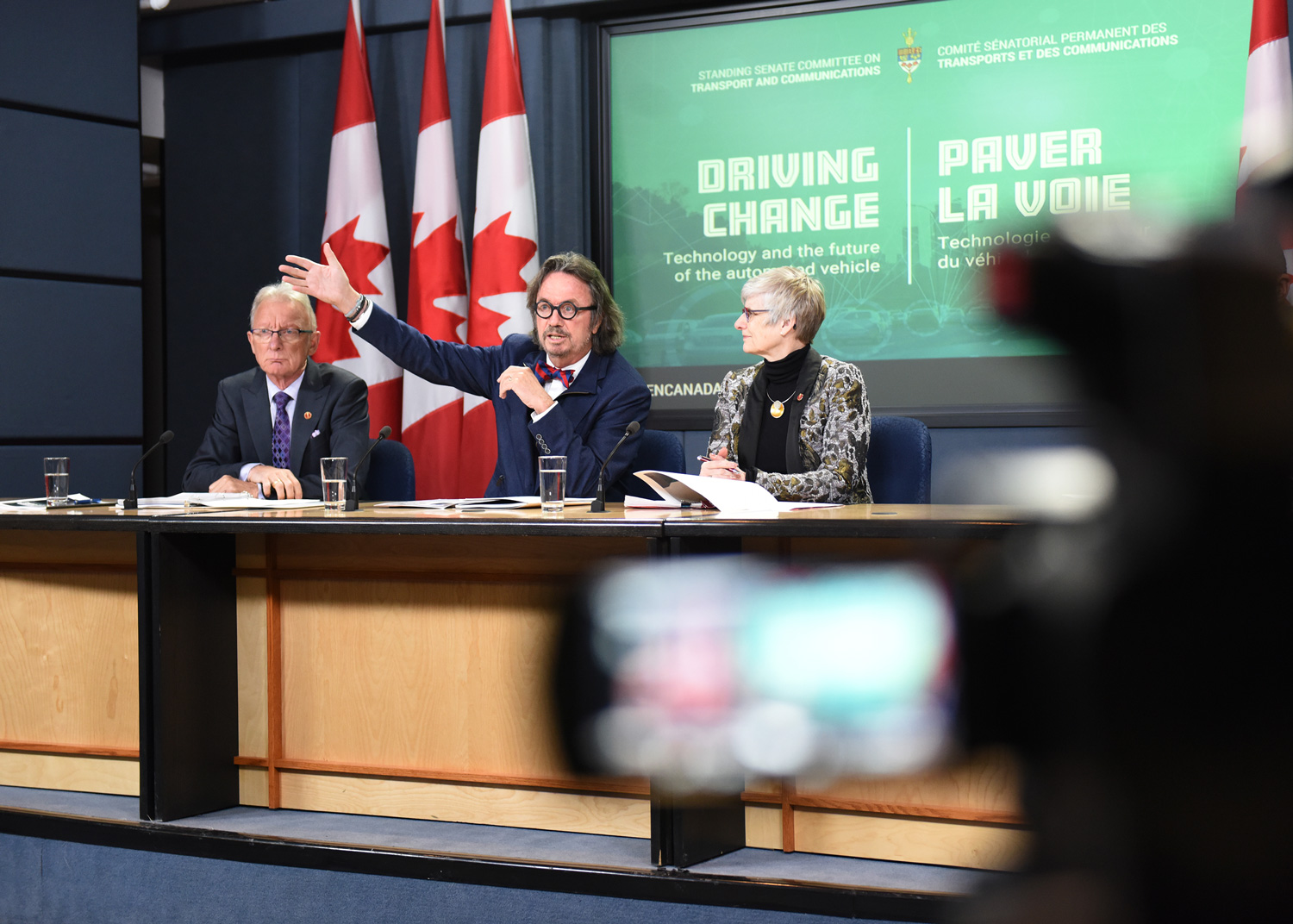
Senators Pierre-Hugues Boisvenu, Dennis Dawson and Patricia Bovey hold a press conference in January 2018 on a Senate Committee on Transport and Communications report entitled Driving Change: Technology and the future of the automated vehicle.
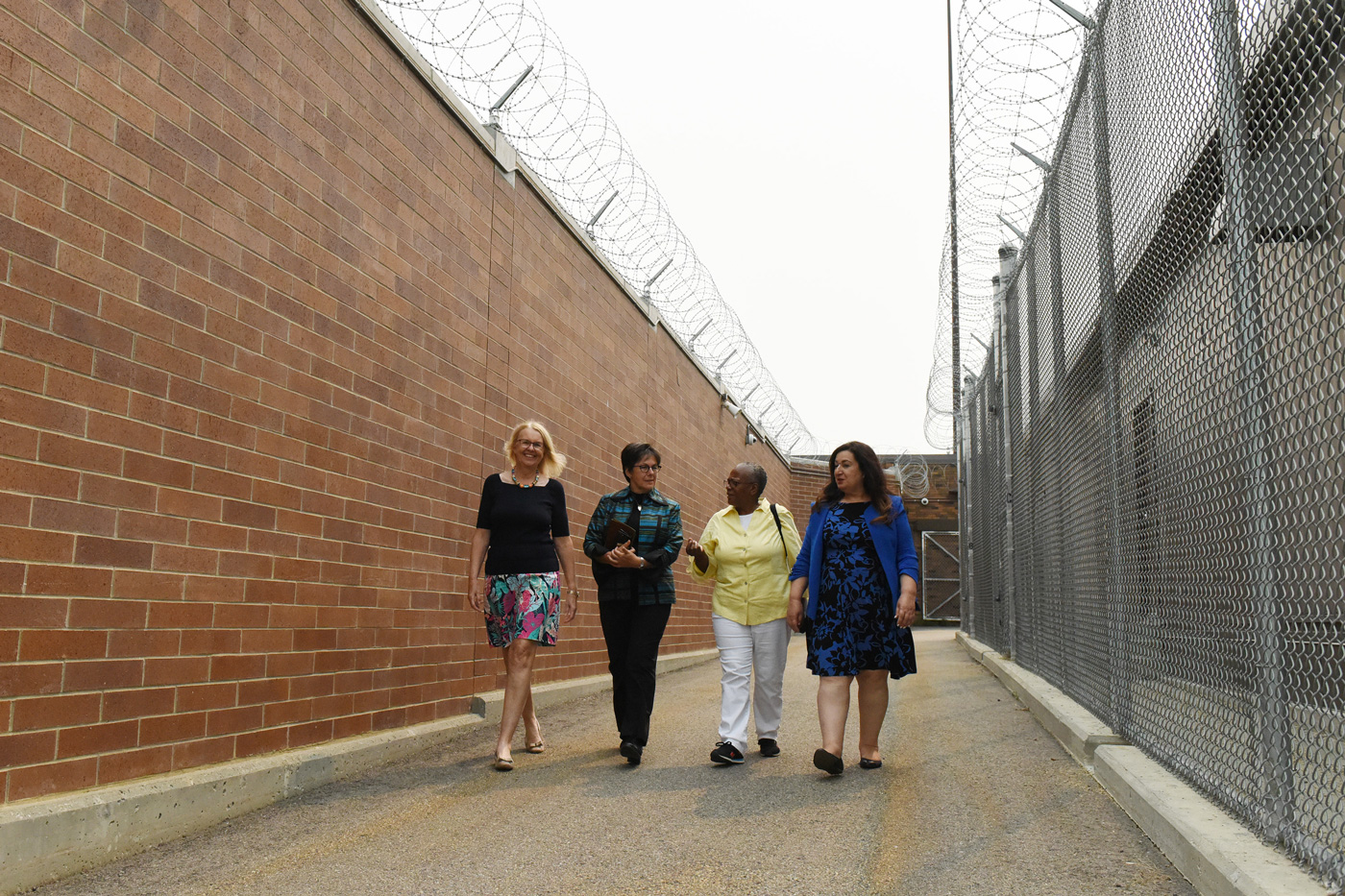
Senators Jane Cordy, Kim Pate, Wanda Thomas Bernard and Salma Ataullahjan visit the Edmonton Institution, a federal penitentiary, on a 2018 fact-finding mission.
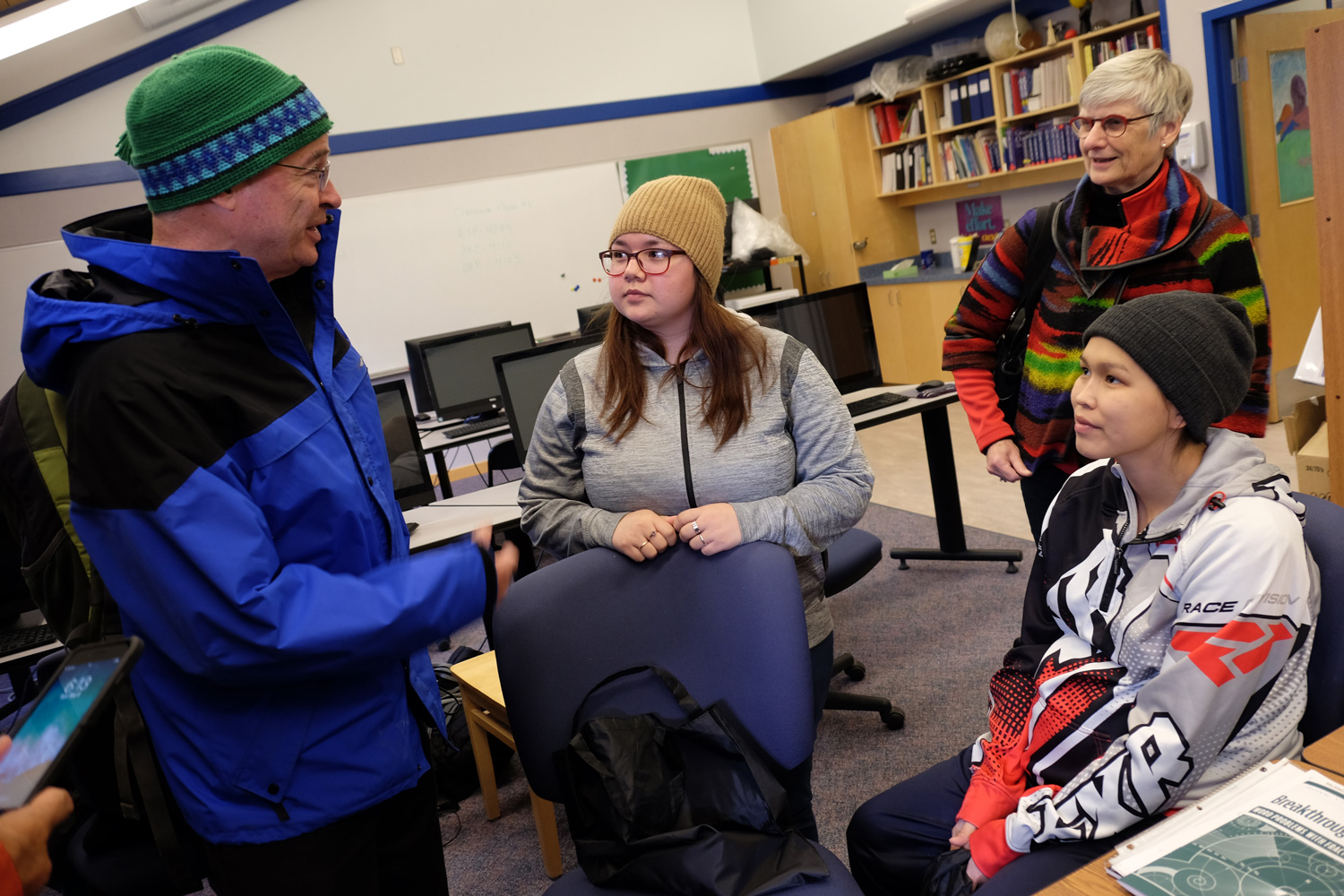
Senators Dennis Patterson and Patricia Bovey speak to young people while on a fact-finding mission with the Special Committee on the Arctic in Cambridge Bay, Nunavut in 2018.
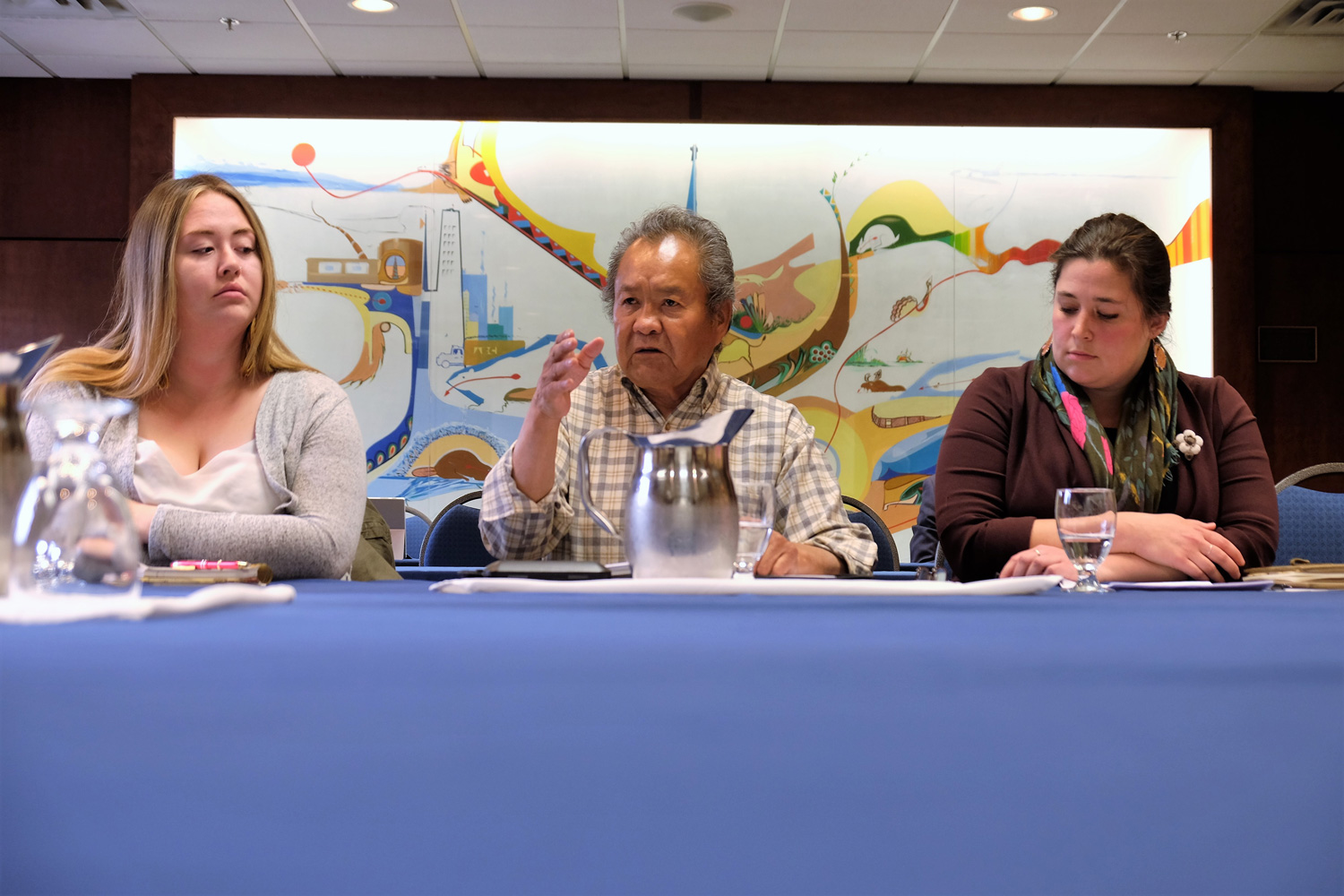
Witnesses testify at a Special Committee on the Arctic meeting during a 2018 fact-finding mission.


